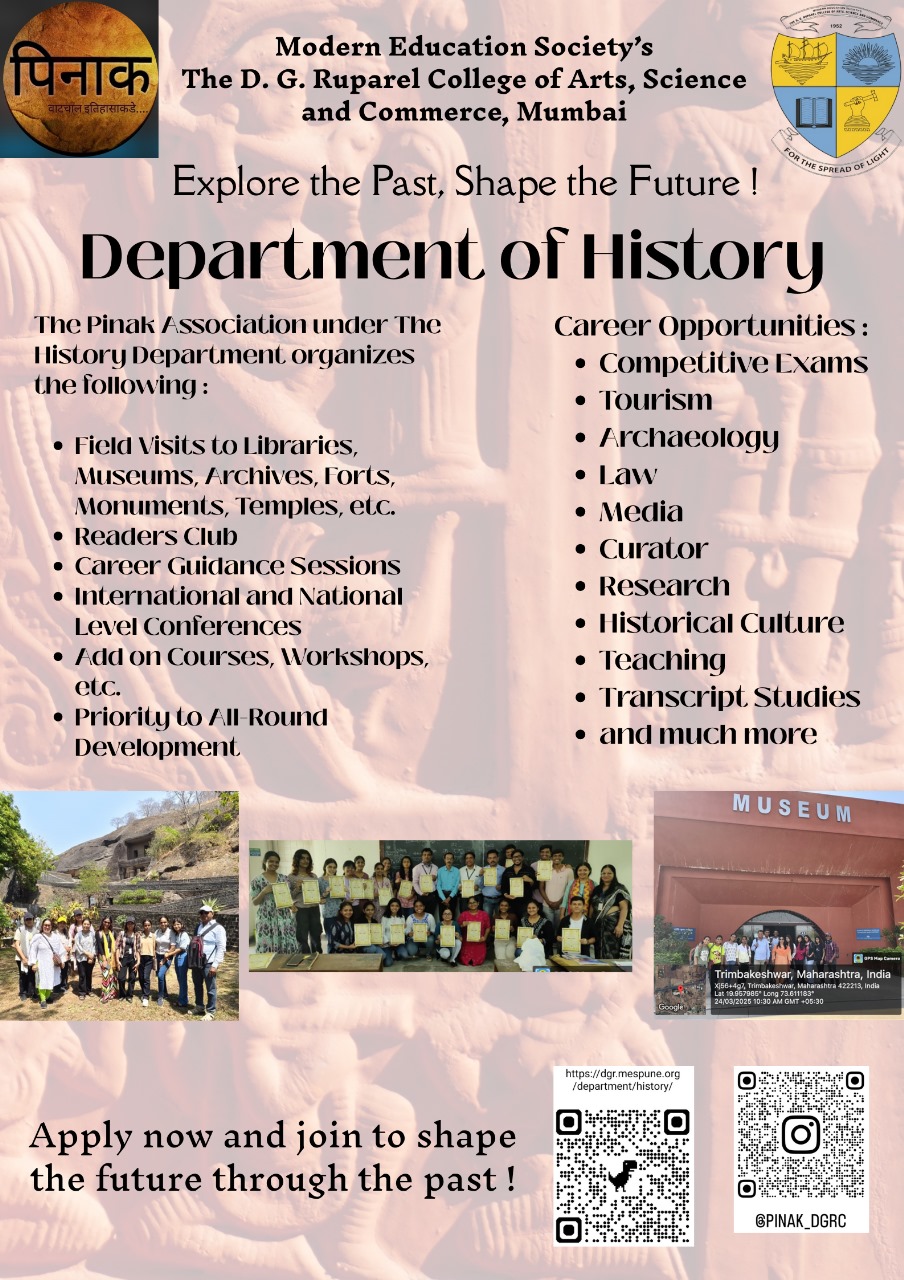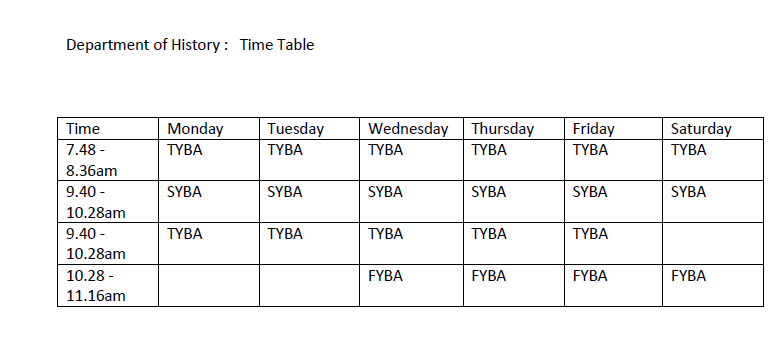Course Outcome
FYBA History
Semester I – History of Modern India 1857 CE -1947 CE
Semester II- History of Modern India 1857 CE -1947 CE
- This course is designed to make the students aware about the making of modern India and the struggle for independence.
- To understand reform movements and its importance.
SYBA History Paper II – Landmarks in world history 1300 CE-1945 CE
Semester III – Landmarks in world history
Semester IV – Landmarks in world history
- To enable the students the transition of Europe from medieval to modern world.
- To acquaint the students with growth of various political movements that shaped the modern world.
Paper III- Ancient India from earliest times to 1000CE
Semester III – Ancient India from earliest times to 1000CE
Semester IV – Ancient India from earliest times to 1000CE
- To acquaint the students with the different sources /tools of ancient Indian history.
- To enable the students to appreciate the rich cultural heritage of India.
TYBA History Paper IV – History of Medieval India from 1000 CE -1526 CE
Semester V- History of Medieval India from 1000 CE -1526 CE
Semester VI- History of Medieval India from 1526 CE -1707 CE
- To acquaint the students with the history of early Medieval India that led to the foundation of the Sultanate in India.
- To examine the administrative, socio-economic and cultural aspects of Medieval India.
- To understand administration of the Mughal.
- To study the rise of Maratha Power
Paper V – History of modern Maharashtra 1818 CE-1960 CE
Semester V- History of modern Maharashtra 1818 CE-1960 CE
Semester VI- History of Contemporary India 1947 CE- 2000CE
- To acquaint the students with regional history.
- To create understanding of the movement that led to the formation of Maharashtra.
- To understand the process of making the Constitution, Integration and Reorganisation of Indian States.
- To acquaint the students with the political developments in India after Independence.
Paper VI- Introduction to Archaeology
Semester V- Introduction to Archaeology
Semester VI- Introduction to Museology and Archival Science
- To understand the basic facets of Archaeology.
- To evaluate the importance of Epigraphy.
- To study the importance of Numismatics as an important source of history.
- To inform the students about the role of Museums in the preservation of Heritage.
- To understand the importance of Archival Science in the study of history.


